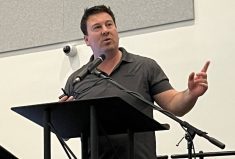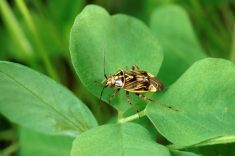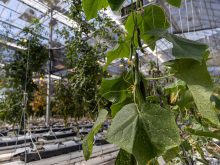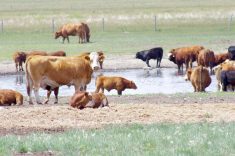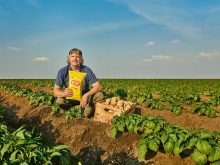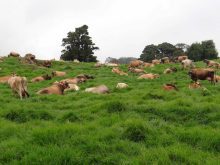honours Variable-rate fertilizing and composting has made this Swedish farm more profitable while earning it environmental honours
Farming sustainably can be good for the bank account, according to a Swedish couple who have been honoured for their environmental stewardship.
“One of my goals in life is to implement changes as long as they are profitable,” Hakan Eriksson recently told a group of visiting international journalists.
“Making a profit is not always about short-term economic gains, neither is profit always monetary.”
Hakan, a third-generation farmer, and wife Teri Lee (who was born in the U.S. Midwest but emigrated to Sweden 30 years ago) farm near the Baltic Sea and were were recognized for their dedication to reducing nitrogen and phosphorus losses on their farm.
Read Also
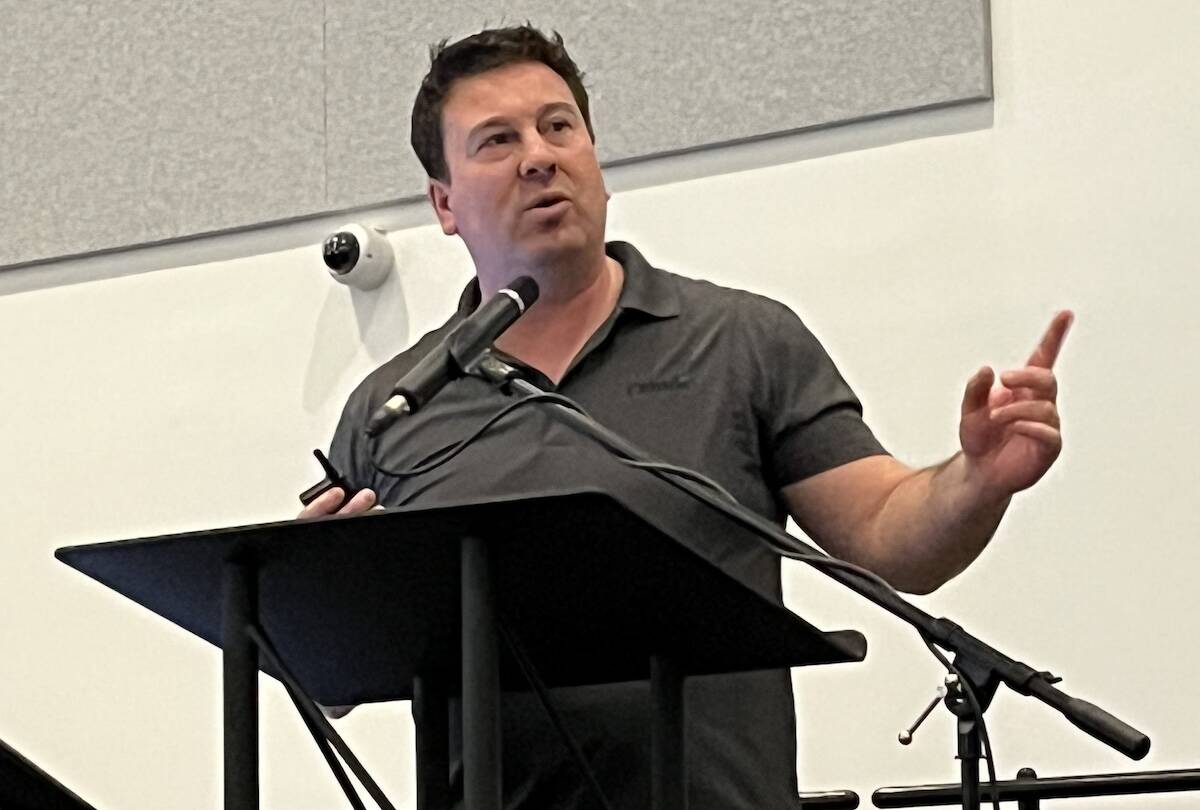
Aster leafhoppers: An unwanted guest migrating from U.S. for canola
Research scientist talks about the prevalence of aster yellows in canola in Alberta, with testing on its pest carriers and conditions in which it affects yields.
“We are well aware of the impact our farming practices have on the aquatic environment,” said Teri Lee.
The couple grows grains, canola, oilseeds, flax, field peas and hay on 600 acres (all but 100 rented) at Wiggleby Farm, located near Lake Malaren, the primary water source for the Stockholm area. They have four employees, but Teri Lee has off-farm employment.
Better management of manure and fertilizer has been a focus for 20 years, and the Erikssons document everything done on the farm in a database.
“As it turns out, making better use of our resources has led to better efficiency as well,” said Teri Lee. “Incorporating pro-environmental efforts has become one of the major building blocks of the farm.”
The farm uses a central-heating furnace which burns logs, wood stumps and straw; uses nitrogen sensor equipment to limit the use of fertilizer; and has a large scale compost facility to recycle waste. The couple uses a Yara N sensor tractor (also known as a Green Seeker) for variable-rate farming, and Hakan said that has significantly reduce nutrient leaching without affecting yields. The compost facility, which uses horse manure and waste from neighbouring greenhouses, will eventually supply 50 per cent of the phosphorus and 10 per cent of the nitrogen they require for their crops.
“Analysis showed that one tonne of this compost contained two kilos of nitrogen and 1.4 kilos of phosphorus,” Teri Lee said.
The compost also provides organic matter for their clay soils.
“We have turned waste into a profitable business opportunity, provide a service for our community and reduce the leakage of nutrients,” she said.
The couple also work with other farmers to share knowledge about sustainable practices and new environmental technologies and said they believe knowledge should be shared internationally.
“What works in Germany may work in Poland,” said Teri Lee. “Knowledge and understanding, along with profitability, are keys to creating a change in attitude about the environment.”
The couple were named 2010 Baltic Sea Farmers of the Year. The award was created by the WWF (World Wildlife Fund) and Swedbank in 2009. Finland, Poland, Latvia, Lithuania, Russia, Estonia and Sweden are the participating countries.



